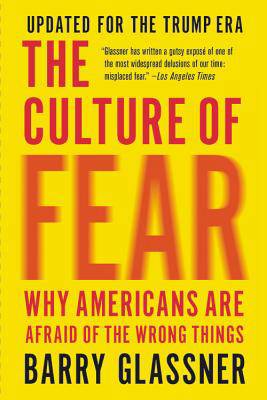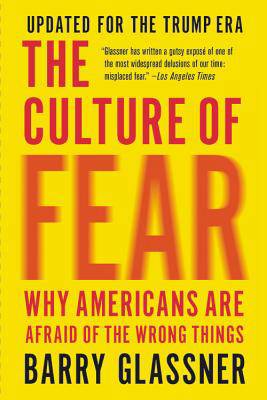
- Afhalen na 1 uur in een winkel met voorraad
- Gratis thuislevering in België vanaf € 30
- Ruim aanbod met 7 miljoen producten
- Afhalen na 1 uur in een winkel met voorraad
- Gratis thuislevering in België vanaf € 30
- Ruim aanbod met 7 miljoen producten
Zoeken
€ 20,95
+ 41 punten
Omschrijving
The bestselling book revealing why Americans are so fearful, and why we fear the wrong things--now updated for the age of Trump
In the age of Trump, our society is defined by fear. Indeed, three out of four Americans say they feel more fearful today than they did only a couple decades ago. But are we living in exceptionally perilous times? In his bestselling book The Culture of Fear, sociologist Barry Glassner demonstrates that it is our perception of danger that has increased, not the actual level of risk. Glassner exposes the people and organizations that manipulate our perceptions and profit from our fears: politicians who win elections by heightening concerns about crime and drug use even as rates for both are declining; advocacy groups that raise money by exaggerating the prevalence of particular diseases; TV shows that create a new scare every week to garner ratings. Glassner spells out the prices we pay for social panics: the huge sums of money that go to waste on unnecessary programs and products as well as time and energy spent worrying about our fears.
All the while, we are distracted from the true threats, from climate change to worsening inequality. In this updated edition of a modern classic, Glassner examines the current panics over vaccination and "political correctness" and reveals why Donald Trump's fearmongering is so dangerously effective.
In the age of Trump, our society is defined by fear. Indeed, three out of four Americans say they feel more fearful today than they did only a couple decades ago. But are we living in exceptionally perilous times? In his bestselling book The Culture of Fear, sociologist Barry Glassner demonstrates that it is our perception of danger that has increased, not the actual level of risk. Glassner exposes the people and organizations that manipulate our perceptions and profit from our fears: politicians who win elections by heightening concerns about crime and drug use even as rates for both are declining; advocacy groups that raise money by exaggerating the prevalence of particular diseases; TV shows that create a new scare every week to garner ratings. Glassner spells out the prices we pay for social panics: the huge sums of money that go to waste on unnecessary programs and products as well as time and energy spent worrying about our fears.
All the while, we are distracted from the true threats, from climate change to worsening inequality. In this updated edition of a modern classic, Glassner examines the current panics over vaccination and "political correctness" and reveals why Donald Trump's fearmongering is so dangerously effective.
Specificaties
Betrokkenen
- Auteur(s):
- Uitgeverij:
Inhoud
- Aantal bladzijden:
- 384
- Taal:
- Engels
Eigenschappen
- Productcode (EAN):
- 9781541673489
- Verschijningsdatum:
- 6/11/2018
- Uitvoering:
- Paperback
- Formaat:
- Trade paperback (VS)
- Afmetingen:
- 137 mm x 206 mm
- Gewicht:
- 317 g

Alleen bij Standaard Boekhandel
+ 41 punten op je klantenkaart van Standaard Boekhandel
Beoordelingen
We publiceren alleen reviews die voldoen aan de voorwaarden voor reviews. Bekijk onze voorwaarden voor reviews.











